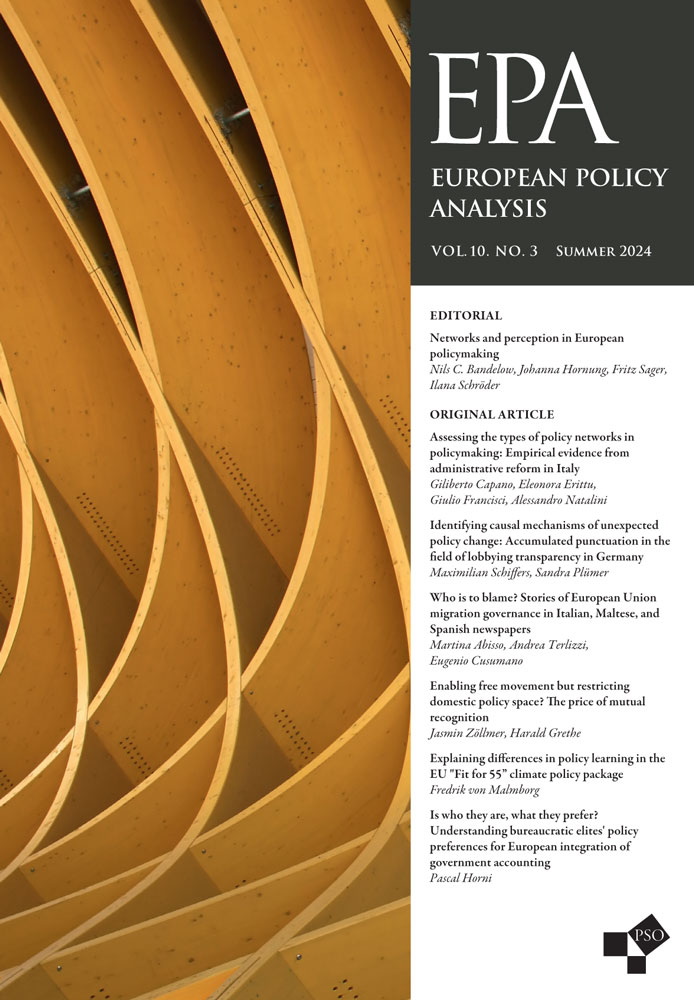
Triggering policy learning via formal EU evaluation requirements in the case of Cohesion Policy
The European Union (EU), especially in the context of Cohesion Policy (CP), has played a crucial role in developing and promoting policy evaluation practices across its Member States. Evaluation systems across the Member States have been established to assess CP investments. Remarkably, the use of evaluation research and its contribution to stimulating policy learning has remained a “black box.” To address this issue, this article aims to develop a novel framework centered around four conditions for evaluation-based policy learning, namely: (1) policy relevance, (2) resources and organizational settings, (3) quality of evaluation, and (4) evaluation culture. These conditions are retrieved from the existing literature on policy evaluation and applied to the six-country cases across the EU. The findings suggest how loosening the formal EU evaluation requirements could affect policy learning in the Member States.






